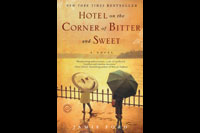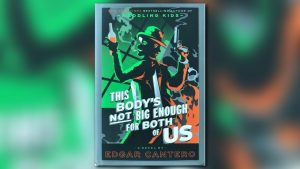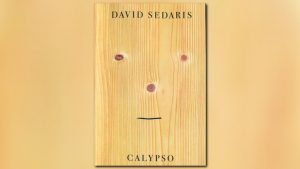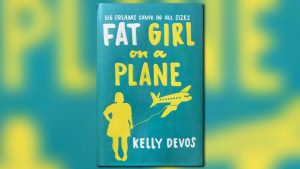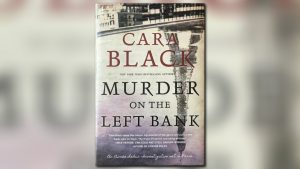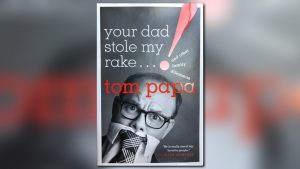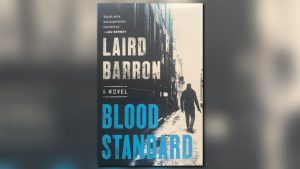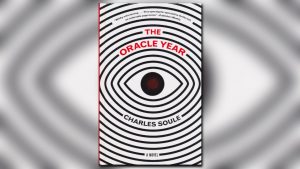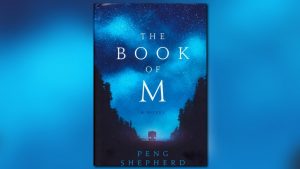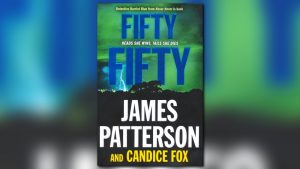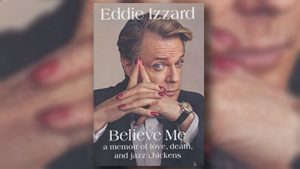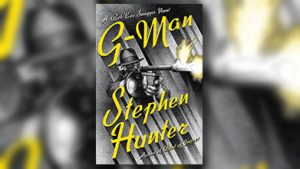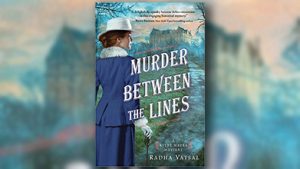Henry Lee comes upon a crowd gathered outside the Panama Hotel.
Once the gateway to Seattle’s Japantown, it has been boarded up for decades.
But now the new owner has made an incredible discovery: the belongings Japanese families left when they were rounded up and sent to internment camps during World War II. As Henry looks on, the owner opens a Japanese parasol.
He is certain that the parasol belonged to Keiko Okabe, a young Japanese-American student.
Amid the chaos of blackouts, curfews and FBI raids, Henry and Keiko forge a bond of friendship–and innocent love–that transcends the long-standing prejudices of their Old World ancestors.
Now a widower, Henry is still trying to find his voice that might explain the actions of his nationalistic father, words that might bridge the gap between him and his modern Chinese-American son and might help him confront the choices he made many years ago.
Albert Rios: Welcome to Books & Co. I am your host Alberto Rios. We are joined today by author Jamie Ford who will be talking about his book, Hotel on the Corner of Bitter and Sweet. The story of a young Chinese boy and a Japanese girl in World War II Seattle and in present time. It's published by Balantine Books. Welcome, Jamie.
Jamie Ford: It's great to be here.
Albert Rios: World War II, a little while back, maybe before your time. This book is a great stretch of the imagination and a historical document. What got you started on this?
Jamie Ford: In the beginning the book started as a short story.
Albert Rios: That's great.
Jamie Ford: It was a short story I wrote at a writers’ workshop in Virginia, of all places. It was the story of a young Chinese boy, a young Japanese girl. It centered around this iconic item, a button that read, "I am Chinese." My father was given one of these buttons to wear about the time he was 15, so that his schoolmates wouldn't mistake him for Japanese and throw rocks and get in fights.
Albert Rios: Which is what we see in the novel.
Jamie Ford: It began as an exploration of some of those stories from my dad's childhood.
Albert Rios: Your dad I take it lived through this. Maybe you can tell us about your personal history. This is the story of, you know, Chinese and Japanese immigrant families living in Seattle during World War II, just before and after the bombing of Pearl Harbor and the anti-immigrant sentiment particularly aimed at the Japanese, and the subsequent removal of the Japanese population to the internment camps.
Jamie Ford: It's a simple love story, but it is set amid the turmoil after Pearl Harbor. It's a perspective I think a lot of people haven't explored in history, fiction or nonfiction. You have two kids that --
Albert Rios: About 13.
Jamie Ford: -- about 13, going to school together in a community that everyone thinks they all look alike anyway.
Albert Rios: Which is an unfortunate stereotype, but that delivers us from that stereotype in a pretty intriguing and powerful way. What I’m wondering now then is what was your family's role perhaps in this?
Jamie Ford: My family's role, it's funny because my dad did wear one of those buttons.
Albert Rios: He is Chinese?
Jamie Ford: Yeah, despite the last Ford, that's probably something that bears another explanation. My dad was full Chinese and my mom was Betty Crocker white. I say that with affection. And it's funny because growing up, my dad was Chinese, married to a Caucasian woman. In the '60s I didn't realize how rare that was. There was Bruce Lee and my dad, the two that come to mind. My dad did grow up during that time period and he did go to school with kids who were not only Japanese but Filipino and Korean. And their communities, they all have their own cultural identity and maybe are withdrawn from one another; definitely Chinese and Japanese-American communities weren't exactly golfing buddies. They had their children going to school together and playing in the street together, yet there was one generation removed. There could be enmity going back to a war that started 10 years prior to Pearl Harbor in China.
Albert Rios: And that war; let's just use it in the plural. Wars out there in the world, how they affect people's lives, even at a distance, that's greatly in evidence here. Disallowing this young boy to live what we might call a normal narrative, a simple life. Even though all of the trappings of a simple life are there for him, it never works out that way. I wonder if you can talk a little bit about the fragmentation in this book. You present this book as a fragment over and over again.
That is to say, it's given to us in one- or two-page increments and it is infused with a love for jazz and other perhaps non-linear narrative metaphors.
Jamie Ford: Right.
Albert Rios: Could you talk a little bit about that fragmentation.
Jamie Ford: Fragmentation, a metaphor for my short attention span. I would write, for those that aren't aware, the book is a split narrative. Half of it takes place in the '40s and half in the '80s. From the point of view of the same character as a boy and then as grown man, and now he's a widower looking back on that time.
Albert Rios: That's actually a wonderful delivery system for the book. I think it speaks too, if we can call it a healthy part of the fragmentation, it certainly helps to heal that.
Jamie Ford: That came about organically as a -- I had written this as a short story and I workshopped it and people seemed to like it. I had shown it to a short fiction editor and an agent friend. But I couldn't find a satisfactory ending in the '40s. For families coming home from camps, that wasn't a happy ending. It was quiet relief at best, restarting lives from scratch. I needed to jump to a time when I could find a more redemptive ending, but a time when the characters themselves, Japanese-Americans were talking about these events and had come to a place of reconciliation. There was the redress from the Reagan administration addressing and apologizing for things that had taken place 40 years earlier. That's why I jumped to the modern setting. It gave it this back and forth looking at the same events from a more mature perspective which kind of rounds out story.
Albert Rios: It allows Henry, the main character, Henry Lee, to have a conversation with himself through time. He becomes two characters and they are having a conversation, which I think is quite a wonderful trick on us as readers. But one I think we welcome.
Jamie Ford: And Henry starts as a precocious kid. I think unbeknownst to him, he grows up to be, certainly not bitter but a jaded man. Wow, how did that happen, is it to allow Henry to change and grow beyond this and recapture that spark of his youth?
Albert Rios: I love this idea that if he is two characters, he speaks two languages, adult and kid, along with the two languages, English and Chinese in his own family. He speaks Cantonese and understands it, as in so many households, parents will speak in Cantonese and he answers in English. The harder line is the tough and adamant sense that Henry should become American and is American, but that means he should speak only English, so they have a difficult time.
Jamie Ford: I call that the logical madness of parents. You know, it stems from the person that smokes two packs a day and says they are going to ground their kid if he ever smokes.
Albert Rios: That's a great phrase, the logical madness of parents.
Jamie Ford: It is, and sometimes it's done with the best intentions, great affection. Maybe not spoken but by example of what we would wish for our children. It's further complicated with families bridging two cultures it's interesting in that I've been asked to speak at a couple of different ESL classes around the country. I initially went expecting the classes to be predominantly Chinese or Japanese, because those are the characters in the book. It's not, there are people from Bahrain or Pakistan or Indonesia. They have the same experience of having parents that want them to gain the benefits of being here in this country, but also retain that cultural identity. They want their children speak English, but they themselves are holding fast and using their child as that cultural bridge.
Albert Rios: They themselves are not doing the job of learning the language.
Jamie Ford: Right.
Albert Rios: The irony is that earlier button you were talking about that says "I am Chinese," which Henry likens to being a little piece of gold, precious and it saves him.
Jamie Ford: Yeah.
Albert Rios: But adamantly, again, his father is insisting that Henry is actually American.
Jamie Ford: Right.
Albert Rios: So the "I am Chinese," which saves him time after time, distinguishing him from being Japanese, is a greatly ironic little button there.
Jamie Ford: It is. I think in Henry's father's case, when he sends his son to an all-white private school, Ostensibly to become more American, it's because he's so incensed that people would mistake his son for being Japanese, or making him – for identifying with another culture that he is so staunchly against.
Albert Rios: And staunchly is a very light word in his case. War between Japan and China that's going on away from Seattle, is right in their living room on the radio.
Jamie Ford: It is.
Albert Rios: Every night, right?
Jamie Ford: We think of the forties, World War II, the bond rallies, come down and have a slice of pie. The same thing is going on in Chinatown where they are raising money for the Chinese army to fight the Japanese. There was this other war going on and a lot of baggage even before Pearl Harbor was manifest at that time.
Albert Rios: A lot of baggage. Let me remind our viewers, this is Books & Co. We're joined today by writer Jamie Ford. I'm your host Alberto Rios. We're talking about his book, Hotel on the Corner of Bitter and Sweet. As we go forward thinking about this, you give us the story not only through characters, but through what the characters love. So one of the main strands in here I think is jazz. You give us a whole tour of the Seattle jazz scene, certainly in the 1940s and really the precursors to it. And we get some follow-up. You've got this character, especially Sheldon.
Jamie Ford: Sheldon is a street musician and kind of a fill-in musician in the evenings at one of the jazz clubs. The jazz element came out of a place of truth. I would go to these Chinese restaurants with my grandfather in Seattle and he would tell me, Cab Calloway used to play here or Ella Fitzgerald used to play here. And my reaction would be, yeah, right. These are those stories that grandparents sort of exaggerate with their children and grandchildren. As I was doing my research, it was true. The China Gate restaurant was originally built as an opera house and there were 38 jazz clubs, including the black Elk Club where Ray Charles had his first paid gig and Quincy Jones used to play there. It's really sad because it's gone, jazz has atrophied a bit. What once were orchestras became ensembles and trios, and just echoes of what were there.
Albert Rios: In the book you single-handedly bring us back in connection with Oscar Holden. He's not a fictional character.
Jamie Ford: There was one real character in the book. He's only in there for a few pages, a man named Oscar Holden. A stride piano player that I envisioned had left the south and gone to Seattle. I stumbled upon this actual real character that was a stride piano player, left the South and went to Vancouver, British Columbia, with Jellyroll Morton in the 1920s. They can trace their lineage to this man. He's really the unsung father of the Seattle jazz scene at the time. I figured, why not put the real guy in? So I -- he'd passed away in the 1960s, I believe. I tracked down his daughter, who is almost 70. She plays and sings in Seattle. I sent her the pages and I asked permission. And she read them and e-mailed me back and said, “I read the pages, I prayed about it, I think my dad wants to be in your book.”
Albert Rios: What a great response. For a writer, this is it.
Jamie Ford: That was magical.
Albert Rios: As a reader I learned something new. He gave me the fiction story but also elements of truth that I can pursue. That's great. We have this story of this kid then, Henry, and his fledgling interest in this Japanese girl Keiko.
Jamie Ford: We don't want to read too much into that.
Albert Rios: It's a moving relationship partly because they are both going to an all-Anglo school and they are the only two Asian students. Everybody assumes they are whatever they are, in this case they keep calling them Japanese. Keiko is Japanese but Henry keeps seeing that side of things. Bainbridge Island is -- everybody's rounded up there, followed soon Thereafter by Seattle downtown area, and including your character Keiko, her family. And she's taken to an internment camp and they are separated. I'm assuming that's just the way it happened. These things were --
Jamie Ford: Really it started with Bainbridge Island because it was a contained community. It went on to the Seattle area and along the coast. 7,000 Japanese-Americans and nationals from Seattle, ultimately 110,000 were taken from an amazing set of locations.
Albert Rios: Those numbers, though, say something intriguing to me about how we see movies today, and we have all this neon, all this bravado. If there were 10,000 people in a camp, and let’s say 200 guards -- I'm making that up -- why didn't they just band together and bust out of there?
Jamie Ford: Why didn't they rally? Because they were Americans.
Albert Rios: That's right.
Jamie Ford: That really is the difference.
Albert Rios: Hard thing to understand today. I think we're in a complex time, but that very simple sensibility that they were Americans. Yet there had to be the impulse. They were asked to sign loyalty oaths, right?
Jamie Ford: They were. They were incarcerated, had lost all of their belongings, businesses, ways of life. They were asked to – not incarcerated for a week, we're talking four years. Then they were asked to sign loyalty oaths to the United States, and then also offering themselves up for selective service, for the draft, to which a great many signed up and served in Europe.
Albert Rios: It's a scary thought to be jailed and then expected to do something like that.
Jamie Ford: Right.
Albert Rios: The complexity of that is also a measure. They viewed it this way and your book makes that wonderfully clear, that was what it meant to be an American. They had something to earn. Perhaps it was not fair, certainly it was not, but they were willing to do it and it demonstrated something. Ultimately it does. We have then later a second generation coming, well, a third generation in the book. It's now Henry's son Marty and his bride-to-be Samantha. And they are very different. Marty likes Chinese food but drives a Japanese car.
Jamie Ford: The world has spun.
Albert Rios: Henry at one point said that would have made his father spin in his grave and he enjoys that thought a little bit. That next generation, was that what it was all for? Have you interviewed people who talk about it? I know Henry in the book, his father says, I did it all for you. But that's a complex message. Part of it is he wanted a good life for Henry, but it was good life according to him. Henry is more willing to let Marty, his son, find a good life on his own terms. Is that a fair assessment?
Jamie Ford: I think so. I think it's just by injection, by the organic nature of one generation removed from that generation that first immigrated here or came here. Their experiences are going to be very western. They are going to have their own traditions and culture, but they are completely immersed in this culture here.
Albert Rios: Yeah. One of the intriguing characters here at the end -- I sort of want to talk about this – the lunch lady. She is gruff, seems to do semi spiteful things, but it all seems to be a cover. Yet she's not at all innocent, either. Talk a little bit about her. She is a great character, maybe in some ways the most complex, though she plays only a small role in here.
Jamie Ford: She's someone that at first blush you think you know her. She's an archetype of a certain type of character. She ended up with depth that surprised even me. People have asked, is this character based on anyone? It's not based on anyone in particular. But the surprising things that come from our own family, my grandmother on my own side, she chewed snuff and she cussed like a sailor. She was this tough woman. There's a lot of that woman in Mrs. Beatty's character. When we think of wives and mothers in the 1940s, we picture June Cleaver, someone deferential and wearing the apron. I wanted someone that was more of Rosie the Riveter, pre-feminist. She is Mrs. Beatty, she is married but she is this strong, really deep surprising character.
Albert Rios: Involved in perhaps a little bit of black marketing and a little bit of help.
Jamie Ford: Green marketing.
Albert Rios: She has all of these strands.
Jamie Ford: You're not sure where her loyalty is, probably to herself. If she can do a few good deeds, she might do those.
Albert Rios: Her loyalty may be to herself but she's not out to do damage. That's a wonderfully redemptive notion; very different from other characters that perhaps Henry is surrounded by, particularly Chaz, the bully.
Jamie Ford: And I have the character of Chaz as sort of the bully, sort of the -- he's almost a shadow antagonist. He's the person you think of tormenting Henry. Really the person that torments Henry is his own father. That's the real antagonist in the story.
Albert Rios: That's a hard one.
Jamie Ford: People can relate to that. The most complex dramas are usually within the walls of our own home.
Albert Rios: Late into the novel we learn more about the father. But again, it's that logical madness you were talking about, that parents have. Certainly his father becomes the embodiment of that, and it plays out to a very difficult end. But one we are not perhaps surprised by. We get that there's some force at work. It seems mysterious for so long but it becomes clear. And you know, this is finally a love story. It's not just simply the easy love story of the two kids, but it is the love story between the father and the son.
Jamie Ford: Yeah, yeah. And that's an interesting thing as a writer. I didn't plot out the father and son elements that -- you know, it's like I’m on Dr. Phil.
Albert Rios: Right.
Jamie Ford: That sort of elbowed its way into the narrative. I think some of my own personal – the relationship with my own father and his father with his parents that just bled its way into the story.
Albert Rios: I didn't want to press that too much.
Jamie Ford: It's funny, people would ask, is your father like that? Or was that your relationship with him? And I would say no. And then I would think about it and go, oh, yeah, there was that two and a half years where I didn't say a word to my father. So sometimes we're kind of blind to it.
Albert Rios: We do find it echoed here.
Jamie Ford: Definitely a taproot I can relate to.
Albert Rios: It's all something we work with as writers, I’m sure, how much of ourselves do we put in. And of course perhaps we're not writing our own story, but supplying our own details much of the time, even when we invent. We're looking through our own eyes.
Jamie Ford: Most writers can't help it. They prick their fingers and bleed on the pain. In this case it's probably more of a heart transplant for me.
Albert Rios: Henry, toward the end of the book, says perhaps the final -- for me, ultimate line about all of this. It's echoed in the title of the book. He says he'd do what he always did, find the sweet among the bitter, which we see now in the title of the book. Thank you, Jamie, for joining us today. I found this idea of cultural complexity, there's nothing simple in this book, though I Think it's a simple read. I mean that in a very complimentary way. It's illuminating for me. I come from the same kind of immigrant background. So many people do now. I think the book has found its place into the world elegantly. Thanks for joining us.
Jamie Ford: Thanks for having me.
Albert Rios: We've been talking today with Jamie ford about his book, Hotel on the Corner of Bitter and Sweet. I'm Alberto Rios, for Books & Co. Thank you for joining us today. We hope to see you again very soon with another good book.
